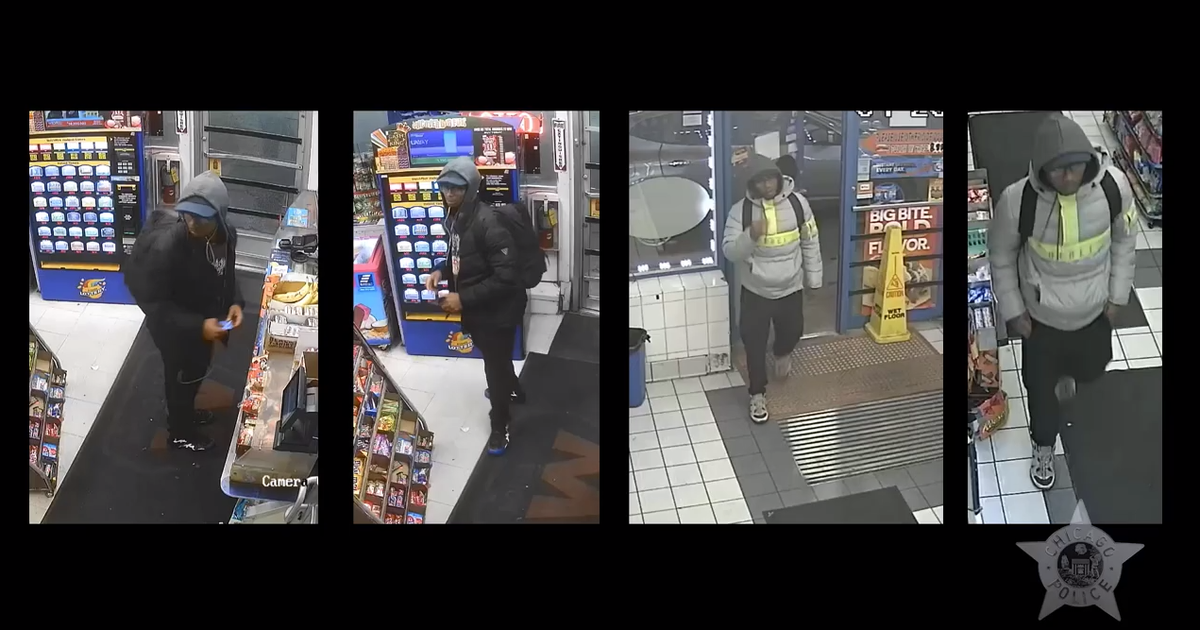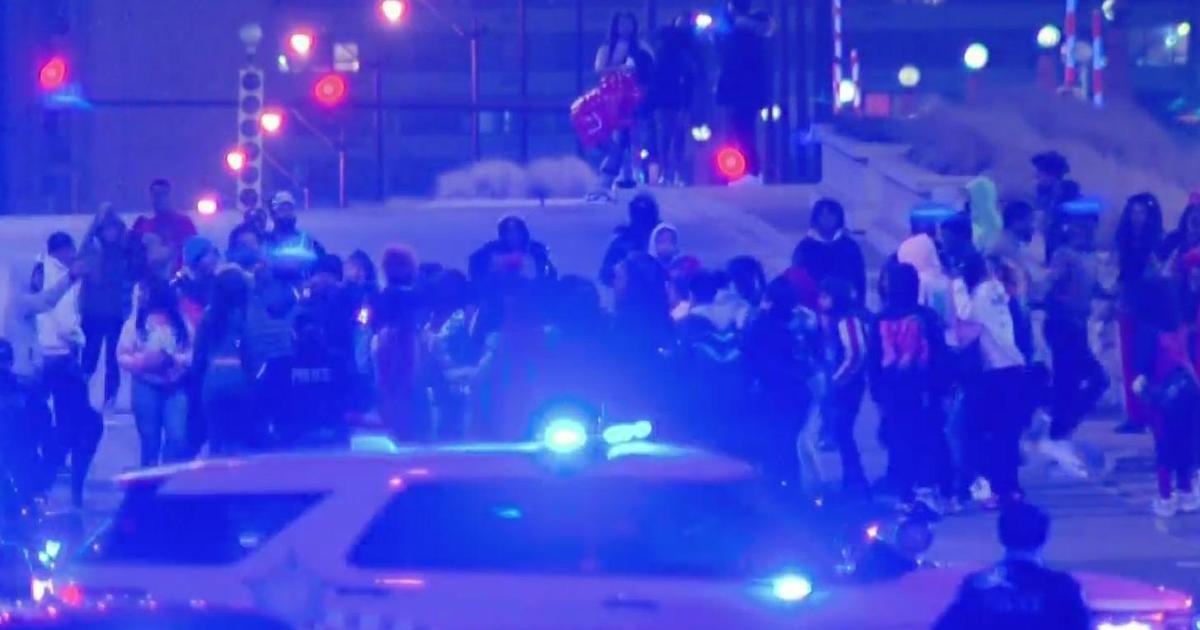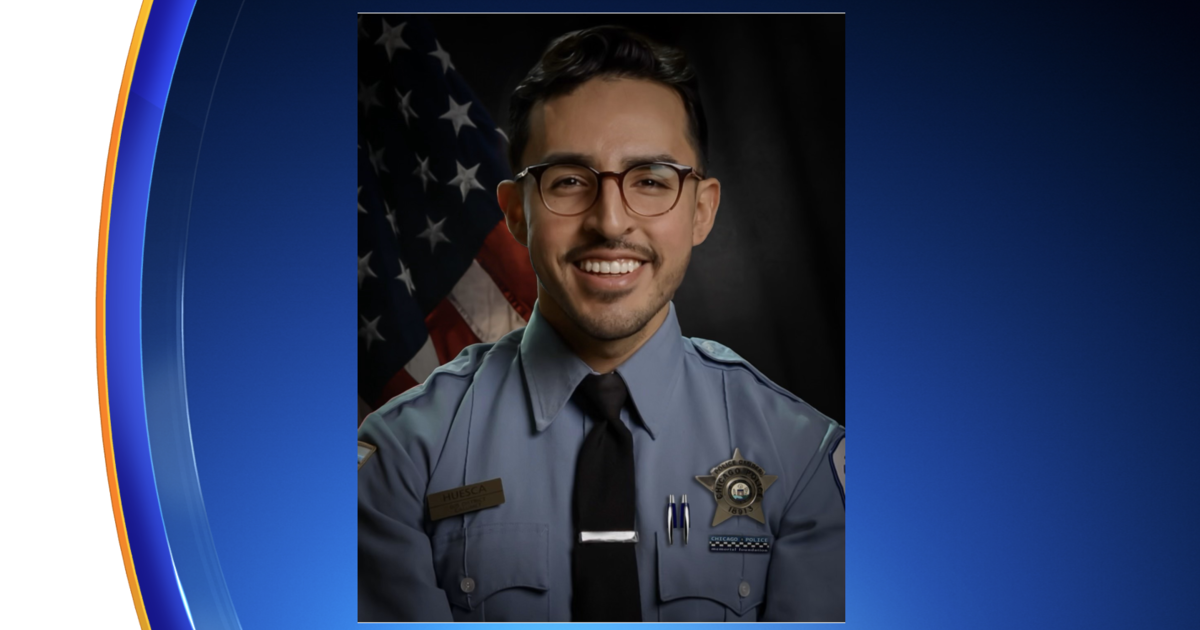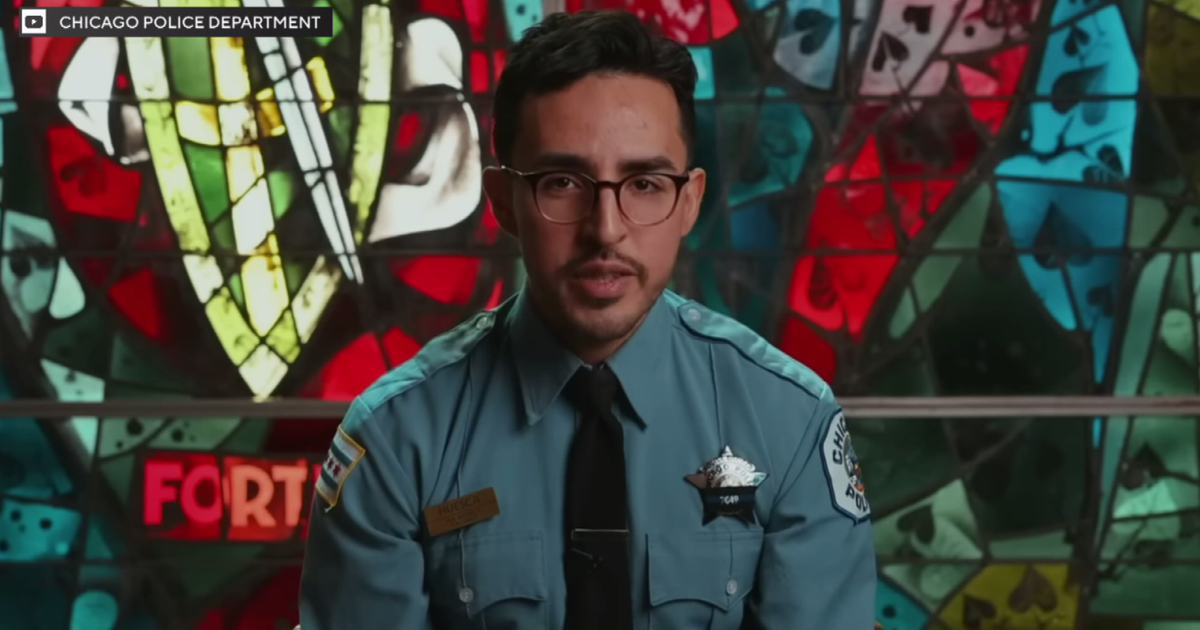Attorney General Merrick Garland Visits Chicago As Feds Launch Strike Force Amid Serious Spike In Violence
By Jackie Kostek and Dana Kozlov
CHICAGO (CBS) -- Violence in Chicago has risen to the point where the feds are stepping in, with U.S. Attorney General Merrick Garland paying a visit on Thursday.
We plotted out all the mass shootings where four or more people were shot. There have been 35 of them, in which 19 people were killed, just in 2021.
Just Wednesday night, there were three mass shootings in just over six hours – two of them blocks apart, and minutes apart, in the North Lawndale neighborhood, and the third at a gas station in Lincoln Park/Old Town.
Between those three shootings, one teenager was killed and 18 other people were wounded.
On Thursday afternoon, Garland toured a high-tech police center at the Harrison (11th) Chicago Police district station on the city's West Side. He was joined by Mayor Lori Lightfoot, police Supt. David Brown, and U.S. Sen. Richard Durbin (D-Illinois).
Garland's day in Chicago ended at a baseball game at Columbus Park in South Austin with community leaders.
"Community support, trust is what helps law enforcement," Garland said earlier in the day.
The new federal Strike Force was launched Thursday in five cities across the country, including Chicago. New York, Los Angeles, the San Francisco Bay Area and Sacramento Region, and Washington, D.C.
"Everyone around this table knows what happened in Chicago - two ATF officers being shot and a task force officer being shot," Garland said.
The incident to which Garland was referring happened earlier this month in the Morgan Park neighborhood. Garland said the rising levels of violent crime across the country not only strikes the communities the DOJ serves, but the law enforcement community itself.
"The threat of violent crime – particularly gun crime – is a tragedy that is just ongoing. I feel it particularly in my hometown here," said Garland, a Chicago native "This morning, we had a meeting at the ATF Headquarters to launch five gun trafficking network strike forces, which are going to attempt to take down these gun trafficking corridors."
Deputy Attorney General Lisa Monaco said law enforcement understands its goal is to go after the criminals who pull the trigger.
"But our job is also of course to go after the sources of those guns," Monaco said.
Going after the sources of the guns that end up on Chicago streets is the goal of the new Strike Force.
"The networks that feed those guns to the places where they are doing the most violent crime," Monaco said.
How the Department of Justice plans to carry out this effort involves embedding ATF agents and gun crime analysts in 45 police departments, specifically homicide units. This means boosting resources where the violent crime is happening and along the paths many illegal guns travel.
The idea is that federal, state, and local law enforcement will work together and share information across state lines. The DOJ emphasized that law enforcement will be working together between the jurisdictions that are sources for guns, and jurisdictions where they end up -- and end up being used in crimes.
"I think this is going to make a significant difference, and here's why. Having the focus on a multijurisdictional basis to coordinate federal resources to address gun trafficking across state lines will make a huge difference in the city of Chicago," Mayor Lori Lightfoot said Thursday afternoon.
The mayor said she has been asking for just this kind of assistance from the federal government for two years, and suggested that former President Donald Trump's administration was not forthcoming with it.
"This is the first time that we've had a president who's answered our urgent plea for this kind of assistance," Mayor Lightfoot said.
The ATF has not specified which pipelines they're targeting, but the strike forces hope to make it easier for federal, state, and local law enforcement agencies to work together - disrupting the illegal gun pipeline in the process.
Monaco said these investments are meant to be long-term.
"This is a not a short-term infusion of resources," she said. "This is a long-term coordinated cross-jurisdictional effort."
But Dave Olson, a professor at Loyola University Chicago and the co-director of the Center for Criminal Justice Research, Policy, and Practice, questioned how useful such initiatives are.
"While it likely will result in more people being arrested and prosecuted for illegally selling guns, are they really the people that are supplying large amounts of guns and would their prosecution and potential sentence to prison have much to do with the overall supply?" he said.
Olson said we have seen a lot of similar programs in Chicago and other cities and it's often difficult to measure how effective they are.
"We may not see a huge drop in gun violence. People say, 'You see it didn't work,'" he said. "Well, it might've worked for exactly what it was designed to do, and that's identify people bringing guns into the city."
Olson said the challenge is this strike force only addresses one element of why crime happens in the first place.
"It's not changing people's perceived need to carry a gun for self-protection. It doesn't eliminate the flow of guns entirely," he said. "It tries to address one part of the market."
But still, Olson says it helps.
"No single strategy is going to address the problem in its entirety," Olson said.
Meanwhile, some living in violence-plagued Chicago neighborhoods, such as Austin resident Lorraine Smith, think the Strike Force program will help.
"It'll save lives – seriously," Smith said.
But as CBS 2 Political Investigator Dana Kozlov reported Thursday night, there are community group leaders who say the program is not the answer. Norvetta Landon is the director of Englewood's Harmony International Development, and she said more resources and money still need to go to fixing the root causes of violence – like no jobs, or hope.
"They have to talk to the people in the community that's living there; that's living on the blocks; that's living with the people selling in front of their house; that's selling on the corner; that has the guns – you have to talk to the people and see what we need," Landon said.
Funding for many community and violence prevention groups hit the skids last decade, especially after former Gov. Bruce Rauner took office. In his most recent budget, Gov. JB Pritzker restored funding for some such programs.
"Of course, we ask for additional resources," Mayor Lightfoot said Thursday. You'd be surprised if we didn't."
But just a year ago, Mayor Lori Lightfoot sent a letter to then-President Donald Trump imploring him not to send additional federal troops to Chicago. She has a different tone now.
"We are using the resources that are here, and coordinating across various jurisdictions, because we're not expecting, in the short term, any additional bodies," the mayor said.
These strike forces are only one part of this federal push to curb violence across the country. Another is to strengthen community and neighborhood groups that also do this work to prevent violence every day.
Garland met with one of those groups now late Thursday afternoon at St. Agatha Church, 3147 W. Douglas Blvd., and met with others at Columbus Park.



